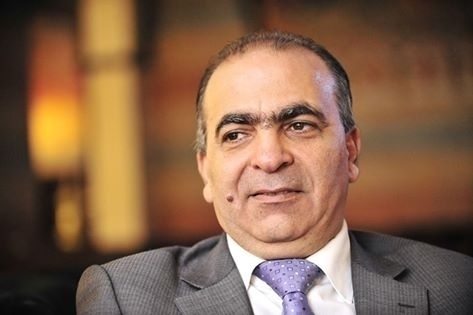No more than a few days had passed under the previous truce and the residents of Aleppo had hardly breathed a sigh of relief after the surprise rapprochement between Russia and Turkey when the Russian bombardment on Aleppo returned, this time with greater monstrosity, at first amid complete regional and international silence. Iranian and regime forces and their militias returned to impose a siege on Aleppo once more, regaining all the positions they had lost in the operation to break the siege (meaning Muhaysini’s promises and threats went unheeded) without any logical explanation either for the opposition forces' swift advance while breaking the siege nor for its swift losses in these areas.
The Russian air bombardment and Iranian land bombardment this time targeted the necessities of life and everything that could help the besieged civilians to continue in their lives. They bombarded hospitals and clinics, civilian districts and markets. It was clear that the Russian bombardment and the Iranian assault were targeting civilian residents directly without any regard for innocent lives, with the aim of forcing the armed opposition to withdraw from Aleppo under pressure from civilian residents and their need for food and safety and deliver it to the Iranians and their militias, and then declare a victory enabling Putin to impose his vision for a political solution in Syria.
Russia did everything it could to push the fighters to leave eastern Aleppo. However, their attempts failed, and the new crimes they carried out against civilians, health facilities, schools and markets caused an increase in pressure and penalties from the international community and the European Union, while the French advanced a draft resolution to stop the bombardment in Aleppo, bring in humanitarian aid and stop the displacement of its residents. The Russians issued another draft resolution allowing them to continue the bombardment of the city under the excuse of the Nusra Front’s fighters presence, with the aim of increasing the pressure on Aleppo residents and forcing them to leave. However, both drafts failed — the French because of the Russian veto, and the Russian because of its failure to obtain more than four votes, thereby returning the bombardment and daily massacres.
Three days ago, Jaish al-Fatah announced the second battle for Aleppo to break the siege on the blockaded areas and carry out a major attack against the positions of Iran and its militias in the areas under regime control, with it achieving notable successes to date, and a noticeable decrease in the intensity of Russian bombardment.
The issue that is difficult to find a clear explanation for so far is the reduction in the intensity of the bombardment. Is there something threatening the Russian aircraft? Or is Putin sending a message to the Iranians after the dispute that erupted between them that they will lose without his support, and therefore they must appear more loyal to him and do what he commands without further discussion? The answer to this question will help in responding to many questions.
It is unlikely that this battle will be the last for Aleppo, and it is unlikely that the opposition will be able to resolve it to its advantage. I expect that it and its desperate population will remain in the circle of fire for no short amount of time, because otherwise this would mean a defeat for the Russian project, and this is something that Russia would not accept and which the United States would not want right now. At least not before achieving the purpose of the Russian-Iranian involvement in Syria.
This issue might not be more than a message to Tehran and Moscow that deciding the battle for Aleppo will need much more than an Iranian-Russian desire to resolve it, and that there are other players in the Syrian arena who are still able to affect the course of events.
May God rest the souls of the martyrs of Aleppo and help the more than a quarter million of its residents who remain in the ring of fire — a ring which the major players do not want to see extinguished yet.
Responsibility for the information and views set out in this article lies entirely with the author.


